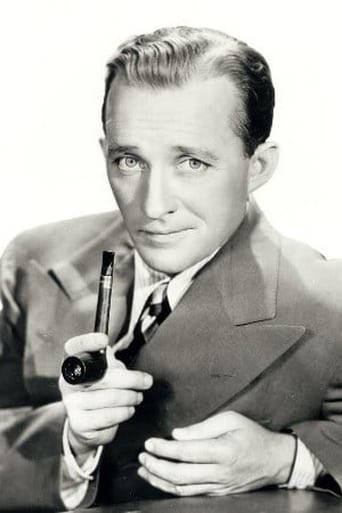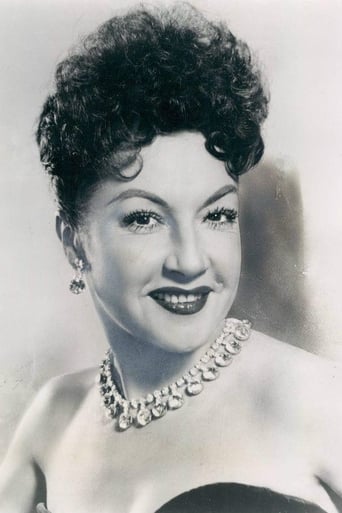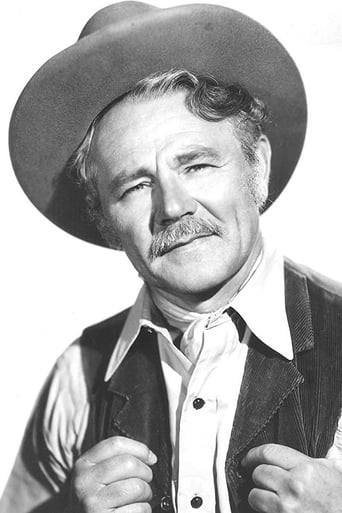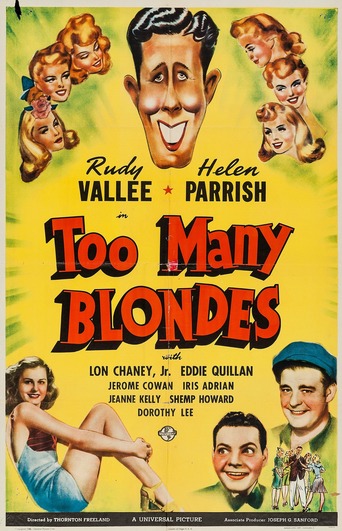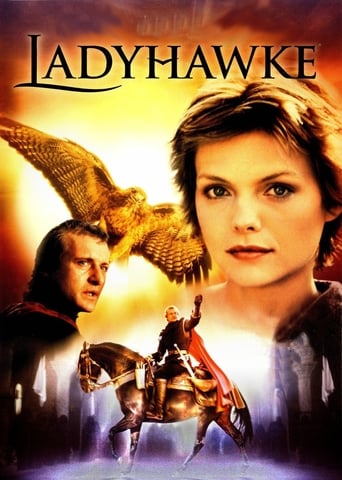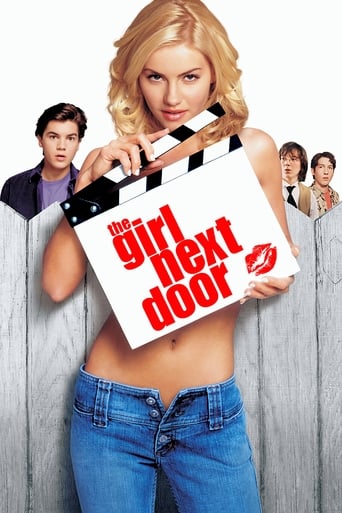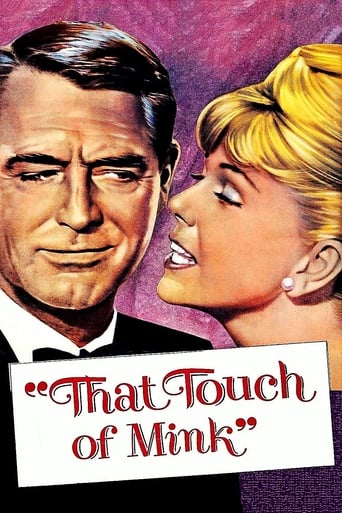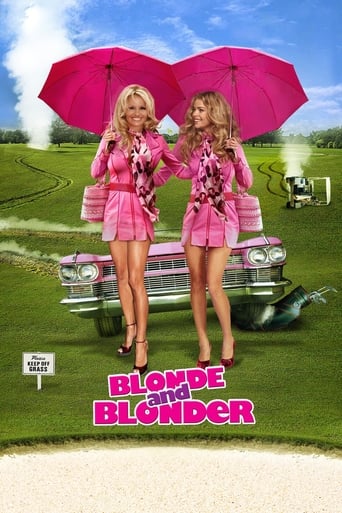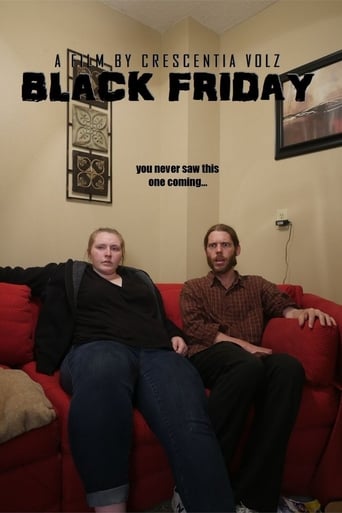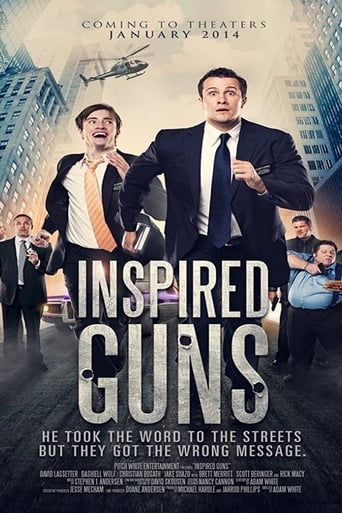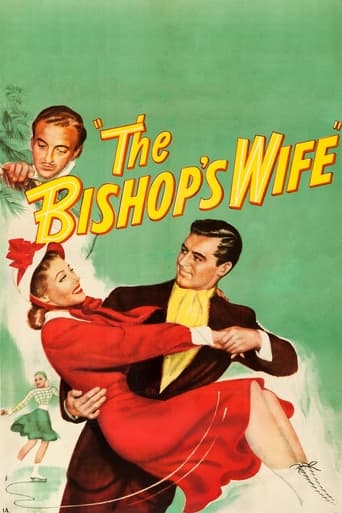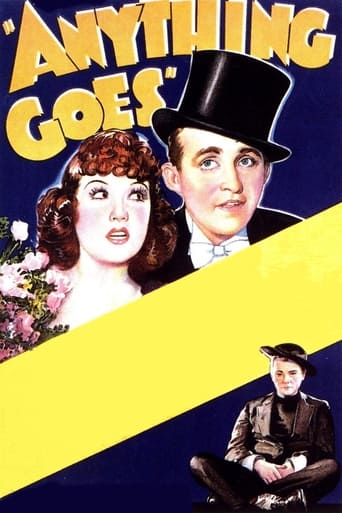
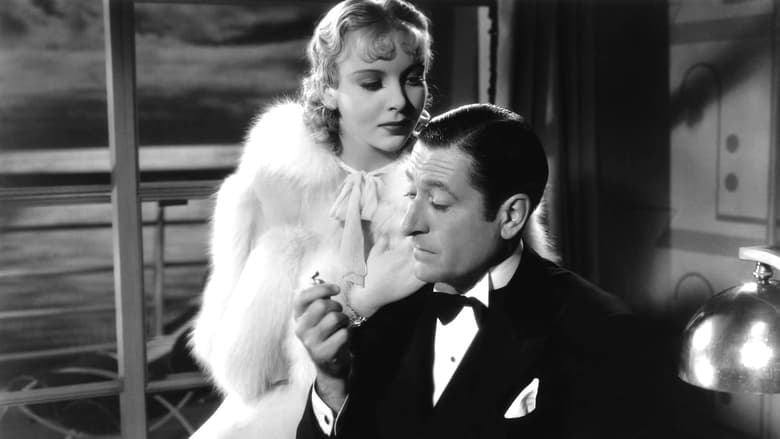
Anything Goes (1936)
A young man falls in love with a beautiful blonde. When he sees her being forced onto a luxury liner, he decides to follow and rescue her. However, he discovers that she is an English heiress who ran away from home and is now being returned to England. He also discovers that his boss is on the ship. To avoid discovery, he disguises himself as the gangster accomplice of a minister, who is actually a gangster on the run from the law.
Watch Trailer
Cast


Similar titles
Reviews
'Anything Goes' has always been one of my favourite Cole Porter musicals. The songs are some of his most memorable and catchy and the lyrics some of his cleverest.This screen adaptation is slightly disappointing but also with plenty to enjoy. It is not among the best screen adaptations of his work (i.e. 'Kiss Me Kate') but not one of the weakest either (i.e. 'Can-Can'). The story is very lightweight and even more flimsy, and the grand production finale is a little overblown, the more lavish production values not quite meshing with the slightly less cinematic look where some lacking-in-finesse editing can be seen.Porter's songs are simply wonderful and brilliantly sung by Ethel Merman and Bing Crosby, but did deserve better treatment. There are some glaring omissions and lyric changes to accommodate the censors meaning that the risqué naughtiness that made Porter's lyrics so clever is swapped for tamer and safer writing and, as much as one tries to judge on its own feet, it just doesn't feel the same.However, apart from the editing it is a good-looking film, not lavish but nicely photographed in black and white and attractive enough costumes and sets. The music is wonderful, even with the changes and not quite feeling like Porter, and the choreography is never cluttered or leaden. The script is clever and witty, with some pleasing humour, and it's all solidly directed.Nothing to fault with the performances. It is very easy to see why Merman was a triumph in her role here on Broadway, belting out powerfully in the title song (one of Porter's most famous classics for very good reason), "You're the Top" and particularly "I Get a Kick Out of You", the latter being the highlight of the film. Crosby looks relaxed and is charming, while Ida Lupino radiates in beauty and charisma and Charles Ruggles enjoys himself enormously.To conclude, so much to enjoy but full potential is not quite met. 7/10 Bethany Cox
In New York, 1936 Cole Porter was the toast of the town...in Hollywood he was just another songwriter. When RKO turned his "The Gay Divorce" into "The Gay Divorcée", "Night and Day" was the only original song kept in the film, but Fred and Ginger were given "The Continental" and "A Needle in a Haystack" to make into standards. "Anything Goes" unfortunately didn't have such luck. It was Cole Porter at his best but censorship was always going to be a problem in bringing his risqué songs to the screen. While the censors relented about the plot, an on the run gangster, Moon Face Martin, Public Enemy 13 disguising himself as a priest, the songs were scrupulously cleansed of any references to cocaine, burlesque dancers and "Holy Moses". The main songs left out were "All Through the Night", "Blow, Gabriel, Blow" and "Anything Goes" (amazingly!!) in which Ethel Merman sang a couple of lines over the opening credits.She soon appears on a swing singing a very cleaned up version of "I Get a Kick Out of You" then confusion sets in. This is not Bing Crosby's finest moment. Charlie Ruggles is a riot as Moon Face Martin, Public Enemy No. 13 (although having seen Victor Moore in a couple of films I can imagine how funny he would have been). Crosby is mistaken for Snake Eyes Johnson, a fellow gangster - he has followed Hope Harcourt (luminous Ida Lupino) on to a liner, thinking she is being harassed by gangsters, but in reality her father has hired private investigators. There is a scene were Reno Sweeney (Merman) and Arthur Treacher start a conversation with "you do something to me" (from Porter's "50 Million Frenchmen" (1929)) - perhaps it was to convince the audience that this movie was based on a Cole Porter musical and they were in the right movie house!!! Mostly the film is filled with lack lustre, forgettable songs although "You're the Top" is sang with verve by Crosby and Merman. The finale "Shanghi De Ho" is a lavish number that looks as though it is filmed in a theatre and not on the docks as it is supposed to be. The film, to me, seemed to have a cheap look about it!!!
ANYTHING GOES (Paramount, 1936), directed by Lewis Milestone, a movie musical based on the 1934 Cole Porter Broadway play starring William Gaxton, Ethel Merman and Victor Moore, is given the screen treatment with Bing Crosby and Charlie Ruggles in the Gaxton and Moore roles, and Merman reprising her stage performance. The movie version, as with most adaptations from stage to screen, has been altered and revised, leaving some of the original score intact, otherwise a traditionally predictable, often silly, mildly entertaining musical comedy that could be categorized as being more faithful to the play than the 1956 screen adaptation also starring Crosby, which borrowed the original title, used some of its original songs but had an entirely different scenario nonetheless.The story opens in a cabaret where American entertainer Reno Sweeney (Ethel Merman) is performing the very night she is to set sail over to London. She loves Billy Crocker (Bing Crosby), an ambitious young man whose boss has left him in charge while away on vacation. As Reno is performing, Billy notices an attractive young girl (Ida Lupino) sitting at another table who appears to be depressed or in some kind of trouble. Moments later, a couple of men (Edward Gargan and Matt McHugh), actually hired detectives, take her away. Fearing she's being abducted against her will, Bill attempts to rescue this damsel in distress, but takes the advise of the men to mind his own business. While on the dock bidding Reno bon voyage, Billy sees the young damsel (actually Hope Harcourt, a runaway heiress being taken back to her family in England by Evelyn Oakleigh (Arthur Treacher) to marry a man she doesn't love) boarding the same ship, and rushes on moments before its departure. While on board, Billy disguises himself to keep from being recognized by his employer (Robert McWade) and avoid arrested as a stowaway. Aside from following Miss Harcourt, who has taken a liking to Billy during the ocean voyage, he joins forces with con man "Moonface" Martin (Charlie Ruggles), Public Enemy No. 13, masquerading as a clergyman, accompanied by Bonnie (Grace Bradley). Because of Billy's association with Moonface, Hope mistakes him for or a notorious gangster and avoids him after he and Martin are arrested and placed in the brig.A Cole Porter score with much from the play discarded ("All Through the Night" is underscored), and new ones composed by others, the motion picture soundtrack to the final cut is as follows: "Anything Goes" (briefly sung by Ethel Merman during opening credits); "I Get a Kick Out of You" (sung by Merman); "There'll Always Be a Lady Fair" (sung by Chill Wills and the Avalon Boys); "Sailor Beware" (by Richard Whiting and Leo Robin/ sung by Bing Crosby); "There'll Always Be a Lady Fair" (reprise/Avalon Boys); "Moon Burn" (by Hoagy Carmichael and Edward Heyman/ sung by Crosby); "My Heart and I" (by Frederick Hollander/ sung by Crosby to Lupino); "You're the Tops" (sung by Merman and Crosby); "Shanghai-de-Ho" (by Hollander and Robin/ sung By Merman): and "You're the Tops" (reprise by Crosby and Merman). With much of the songs worked within the contest of the plot, only two are given the production treatment "I Get a Kick Out of You" with Merman sitting in a ring shaped carrier suspended from the ceiling in the cabaret sequence; and the finale "Shanghai De-Ho" performed by Merman dressed in Oriental costume for the Paramount news reel set in England during a rainy afternoon. The Crosby and Merman duet of "You're the Tops" is tops, even with its dated lyrics and in-jokes that might not be understood by today's generation. The humor from that same number predates those 1940s "Road" comedies starring Crosby and Bob Hope where Merman briefly sings in Crosby's voice and Crosby hers.For anyone familiar with Ida Lupino's dramatic movie career that took off in the 1940s, and her directorial work shortly afterwards, may be surprised seeing this brunette a blonde appearing in a musical. This would be one of her rare opportunities in which the British-born actress would portray a character of her true heritage on the American screen. Others in the cast include: Margaret Dumont (taking time away from The Marx Brothers) as Mrs. Wentworth; Richard Carle as Bishop Henry Dobson; among others.ANYTHING GOES might be mistaken as a 1930s Crosby musical that never made it to television. Due to the 1956 remake in name only, which had been shown on American Movie Classics around 1991-92, the television title to this version was retitled "Tops is the Limit." In recent years, it's cable television presentations were limited, notably presented as part of its "Best of Hollywood" series on the Disney Channel also during the mid 1990s.With the title that might have been suited for pre-code films produced during 1930-33, ANYTHING GOES is typical boy meets girl/mistaken identity/shipboard romance plot highlighted by songs and fine cast that should please any fan of musicals such as this. (***)
The trouble with filming Cole Porter shows is that the book and lyrics were normally, so naughty, so risqué that it was inevitable those sharp eyed censors feasted mightily on cuts.This first version of Anything Goes was no exception. All the naughty lyrics and risqué situations and dialog were cut out to make this product G rated. It wasn't until Kiss Me Kate was done in the 1950s that a really successful adaption of one of Cole Porter's Broadway shows was done. The best success Porter had on the screen was when he wrote directly FOR the screen. Born to Dance, Rosalie, High Society, etc.What this Anything Goes has to recommend it was the fact that this was only one of two instances where Ethel Merman reprised one of her Broadway successes for the screen. At that she sung some G rated lyrics for the title song and I Get A Kick Out of You.The only thing that Bing Crosby got to do in the movie that was from Cole Porter was a duet with Ethel Merman with You're the Top. If I had to nominate a song in history that's had more lyrics done for it would have to be this one. The melody is eternal and the lyrics are constantly being updated. Someone ought to investigate the Cole Porter estate and see just how many verses he actually wrote to You're the Top. Surely there haven't been any since 1964, but you can hear versions of You're the Top even today with up to date topical lyrics:You're the Top, you're Madonna's reinventionYou're the Top, you're Bush's stolen electionNow I just made that up, but it's a tribute to a great songwriter and an eternal melody.A whole bunch of Hollywood songwriters gave Bing Crosby some serviceable tunes for him, but it ain't Cole Porter. I think this has to do with the family image that Crosby had even back then. No naughty Cole Porter lyrics for Der Bingle.Yet he has some moments with songs. I particular like the number he does from the ship's crow's nest, Sailor Beware. Good song, but it's a typical example of the cheap production numbers that Paramount gave Crosby at this time. If you look at it, try to imagine what Busby Berkeley would have done. He also has a nice ballad to sing to Ida Lupino in My Heart and I. Finally there's a song called Moonburn which sold a few 78 rpm platters back in the day. On record Crosby sings it with just the accompaniment of jazz pianist Joe Sullivan. It's classic Bing.Charlie Ruggles was never bad in anything he did, but I do kind of wish that Victor Moore reprised his part from Anything Goes. He was a big hit on Broadway as squeamish Public Enemy 13, Moonface Martin.Ida Lupino gives very little indication of the classic actress she became on screen. But she's serviceable as Bing's love interest.Look at the trio of sailors singing, They'll Always Be a Lady Fair and you'll recognize Chill Wills.Add to that a badly butchered job in editing and you haven't got one of Bing Crosby's best films, but still enjoyable for fans of Der Bingle like your's truly.


